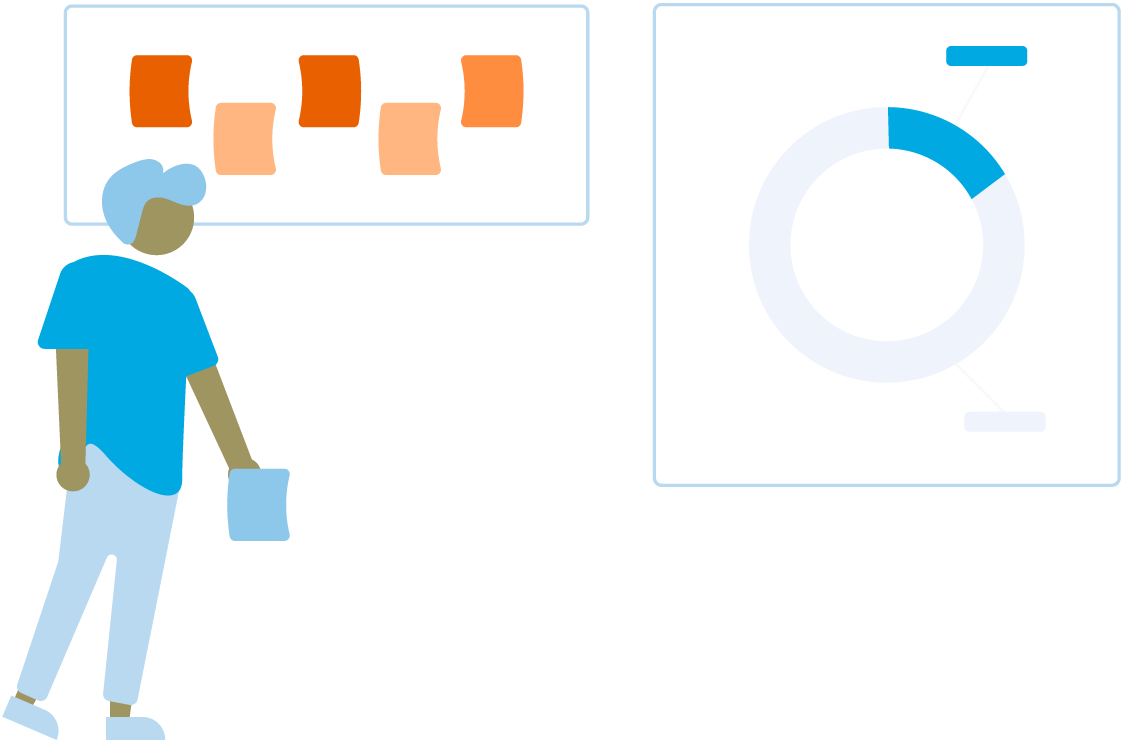How to benefit from change – the perfect change mindset
Change never seems natural. Mostly, we repel it and want to stay where we are (in our comfort zone). Especially in these times change seems to be everywhere. So what can we do? Repel it or embrace it? We asked Debbie Craig, the author of the book
“PowerUp8: Discover the 8 Critical Capabilities to Navigate an Unpredictable World“ how she handles change. Her perspective on this topic can help us a lot to remain calm and take advantage of hard times.

Hey Debbie, thanks a lot for accepting this interview request. So, we would like to start with a interesting question: Which thoughts help you most to embrace change?

- Change is necessary for growth and survival
- I love the adventure of change
- If it’s to be it’s up to me
- I am capable and resourceful when dealing with unexpected change
- Our attitude determines our altitude
- We can make this work if we are agile and adapt
- “Be the change that you wish to see in the world” – Gandhi
- “Change will not come if we wait for some other person or some other time. We are the ones we’ve been waiting for. We are the change that we seek.” – Barack Obama


- Morning meditation – setting up my day in my subconscious mind, using Alpha brain wave state – how I will respond to any challenges or opportunities that may arrive
- Empowering affirmations and quotes – as above – place up on the wall or screen saver
- Brainstorming ideas – how to respond to change with a good friend or coach
- Journaling – at the end of the day, to check in to see how I am feeling, how did I think and respond today and what can I do differently tomorrow
- Managing stress – making time to reflect, exercise, work in the garden, do yoga or other stress releasing activities

“I can’t change the direction of the wind, but I can adjust my sails to always reach my destination.”
– Jimmy Dean


When change happens unexpectedly (e.g. Covid) then it is important to adopt the right mindset or attitude toward the change or the person/organisation creating the change, and look for the possibilities and opportunities rather than what you are losing and how you are stressing or suffering.


The biggest thing is to believe in yourself and your ability to handle anything that comes your way.
Know that F.E.A.R. is often Fast Evidence Appearing Real.
Get more valid information (not fake news or opinions). Then build your internal dialogue for empowering beliefs and affirmations about the change and about yourself to give you more energy for dealing with the change (see above). Lastly, surround yourself with people that are optimists and possibility thinkers and supporters, so that you can uplift your energy and discover creative approaches to managing change that can work for you in the long-term.



Fear is a natural part of our psychology and survival instincts – our in-built fight, flight or freeze brain response.
In times of unexpected and continuous change FEAR can be debilitating and stem from mul-tiple sources – usually associated with loss of some sort… loss of status, income, belonging, health, love, life, failure, humiliation … even success.
Depending on core stress triggers you may be motived differently and have different fears. According to neuroleadership expert David Rock, we have 5 main threat responses:
- Status
- Certainty
- Autonomy
- Relatedness
- Fairness
=> SCARF
If any of these are threatened by change we go into the threat response.


If you are ready, relevant and resilient for change, then you are more likely to maintain a healthy mind, emotions and body for persevering through the change.
In my new book PowerUp8 we unpack 8 Capabilities to navigate an unpredictable future. These are Curiosity, Creativity, Courage, Change Navigator, Conscious, Critical thinker, Collaborator, Contributor.

– Socrates


Often a change initiative comes from outside or higher up in the organisation and there isnt sufficient time spent gaining input and buy-in from the people affected by the change . e.g. restructuring, customer demands, new technology, new value system.
This often leads to a lack of clarity and sense of urgency for the change. People will stay in their known comfort zone for as long as possible unless motivated or forced to change.
There is also often different ideas on how the change should be managed leading to lots of conflict and waste of time and money as power dynamics play out. Finally there is often a lack of understanding of the impact of change and who and how it might affect people and what they need to make the change (purpose, knowledge, skills, motivation).


- Leaders of self – build resilience, confidence, teamwork and key skills
- Leaders of others – build understanding and skills in change impact, stakeholder management, change planning, communication and leading change
- Leaders of leaders – build understanding and skills in strategic and systemic change processes and how to build organisational readiness for change



- Lack of planning for change – and identifying the impact on specific groups
- Lack of communicating in time – holding back for lack of full info as the change unfolds
- Not building readiness for change – the confidence, mindsets and skills needed to adapt to any change personally or professionally – and tools to manage stress differently
When we understand, identify, empathise, plan for, communicate and build capacity for change, then change can be a lot smoother and less painful


Often trust is broken when leaders are perceived to be holding back, not transparent, not authentic and not communicating regularly and often (even if it is to tell people what you dont know yet).
Trust includes having the courage to be vulnerable and talk about your own struggles and uncertainties in a way that still shows strength and leadership that we will figure it out as a team.
Thanks a lot, Debbie Craig, for taking the time for this Interview. Your thoughts and your perspective can help a lot, when it comes to establishing a change mindset.
For everyone who is interested in Debbie´s work: Please find here her book „ PowerUp8: Discover the 8 Critical Capabilities to Navigate an Unpredictable World“ here or visit her website here.
We hope the interview could give you some ideas and inspiration to better deal with change. If you need professional support for your change initiative, please do not hesitate to contact us via e-mail or phone.

